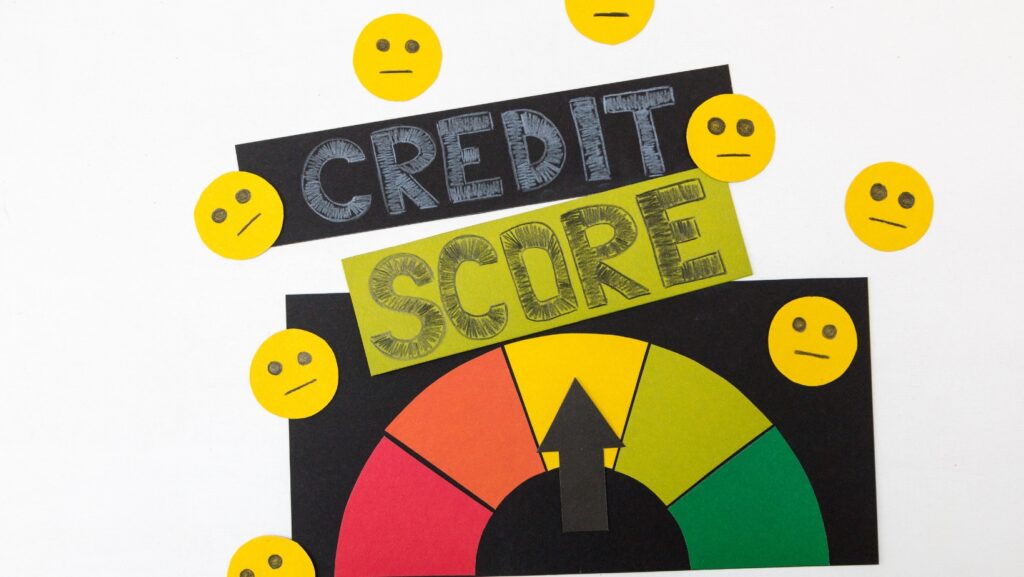In our modern society, credit has become essential to our financial journey. Now, creditworthiness is assessed based on credit scores and credit reports when you apply for a credit card, a loan or even a government job opportunity. It’s crucial to grasp these concepts in India to manage your financial health effectively. In this blog, I will explain the concept of credit scores and credit reports.

What is a Credit Score?
A credit score is a 3-digit numerical representation of any individual’s creditworthiness.
Credit bureaus in India, such as CIBIL (Credit Information Bureau India Limited), Experian, Equifax, and CRIF High Mark, provide credit scores. The most widely recognized credit score in India is the CIBIL score. It typically ranges between 300 and 900, with a higher score indicating a more creditworthy individual.
Factors Influencing Credit Scores and Credit Reports?
Several factors contribute to the calculation of credit scores in India. These include:
a) Payment history: Timely payment of credit card bills, loans, and EMIs.
b) Credit utilization: Maintaining a low credit utilization ratio (the percentage of available credit you use).
c) Credit mix: A healthy mix of different types of credit, such as loans and credit cards.
d) Length of credit history: A longer credit history demonstrates stability and responsible behaviour.
e) Credit inquiries: Multiple credit inquiries within a short period can negatively impact your score.
Common Credit Score Myths Debunked
Myth 1: Regularly checking my credit score will lower it.
Explanation: This is a misconception. Checking your credit score does not impact your credit score negatively. Monitoring your credit score regularly is a responsible financial practice that helps you stay informed about your credit health and identify discrepancies or errors.
Myth 2: My income affects my credit score.
Explanation: Credit scores are calculated based on information in the credit report. It is affected by credit history, payment behaviour, credit utilization and other factors. Your income is not mentioned anywhere in your credit report. However, higher income may enable you to manage your debts more effectively.
Myth 3: Credit Score is the sole criterion for securing a Loan or Credit Card.
Explanation: Credit scores are crucial in loan and credit card approvals, but they are not the only factor lenders consider. Other aspects such as income, employment history and repayment capacity are crucial factors in the decision-making process. A good credit score increases your chances of approval, but it is not the sole criterion.
Myth 4: Closing old accounts can help improve credit scores.
Explanation: Length of credit history is essential in credit scoring models. Closing old accounts reduces your average credit history length and may decrease the overall credit available, potentially affecting your credit utilization ratio. It is generally advisable to keep old accounts open unless there are specific reasons to close them.
What helps to increase your credit score?
Here are a few tips to monitor and improve your credit score gradually:
a) Check your credit report regularly: Review your credit report regularly to identify any discrepancies or errors that may negatively affect your score.
b) Pay bills on time: Make timely payments for credit cards, loans and other debts to establish a positive payment history.
c) Maintain a low credit utilization: Aim to utilize only a tiny portion of your available credit to demonstrate responsible credit management.
d) Limit credit applications: Avoid making multiple credit inquiries quickly, which may indicate financial instability to lenders.
e) Diversify credit mix: Maintain a healthy mix of secured and unsecured credit to showcase your ability to handle different types of debts.
f) Resolve defaulted debts: If you have any defaulted debts, work towards paying them in full as soon as possible to improve your creditworthiness.
Final Words:
Understanding credit scores and credit reports is paramount in India’s credit-driven economy. By mastering the basics and following sound financial practices, you can take control of your creditworthiness, access better financial opportunities, and achieve your long-term financial goals. Remember, maintaining a good credit score requires discipline, responsible borrowing and diligent monitoring of your credit profile.
